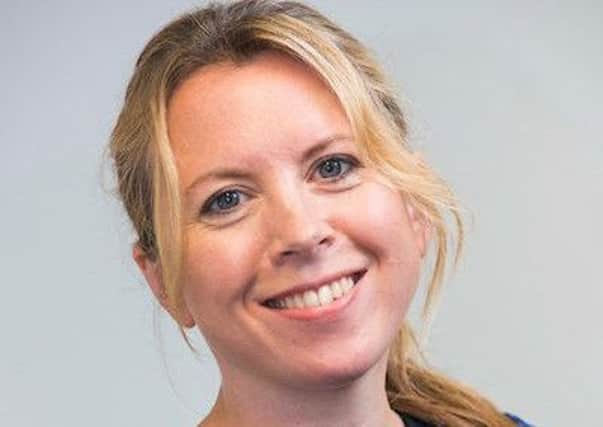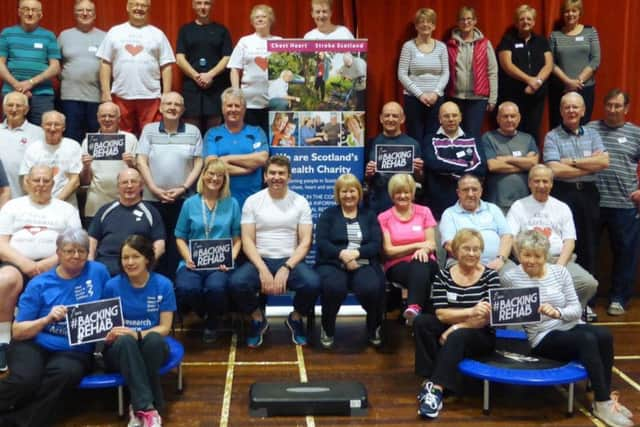Helping half a million people reclaim their lives


For some people – such as the one-third of stroke survivors who experience disability – there are huge physical changes to cope with. But often the impact goes far wider than physical health, and without getting support people’s mental health can also suffer. Every aspect of someone’s life can be affected, from their social and family lives through to their jobs and finances. It’s not uncommon for people to feel isolated and lonely, and they may find it difficult to manage disabilities which are sometimes “hidden” (for example cognitive or communication difficulties), as well as practicalities like navigating the benefits system, and coping the psychological impact of worries about future health.
All of these survivors need access to rehabilitation and support, which is essential to help them reach their goals, stay as healthy as they can, return to work if they are able, give them enough confidence to get active, and help reduce the risk of becoming depressed or lonely.
Advertisement
Hide AdAdvertisement
Hide AdAfter a heart attack or stroke, or when someone is living with a serious lung condition, the NHS should provide a programme of formal rehabilitation which provides exercise, support and advice. The impact of this can’t be underestimated, as Ian Baxter, who lives with the lung disease COPD, explains:


“The diagnosis and realisation of my illness really hit me hard. I felt low and unable to cope. There is no doubt that pulmonary rehabilitation helped to turn my life around, and allowed me to be much more in control of my COPD and my life.” But we know that access to NHS rehabilitation programmes is in reality a postcode lottery. The most recent data available on rates of referral to cardiac rehabilitation show that these range from just 40 per cent in some Health Boards to 100 per cent in others – and then between only 36 per cent and 80 per cent of people go on to complete their rehabilitation programme. The picture with pulmonary rehabilitation – for people with lung disease – is even more stark, with one health board providing no services at all. We also know that increasingly there are funding issues for provision of physiotherapists, who often lead rehabilitation programmes.
Where programmes are available, there can be long waiting lists, and often there are significant barriers to participating (for example with accessibility, travel and fluctuating health) which mean that people do not complete their programme.
This is despite rehabilitation being proven to be cost-effective as a treatment, improving health and quality of life, and making huge savings to the NHS in reducing the number of hospital admissions and the length of hospital stays.
Crucially, in order to maintain the benefits gained from rehabilitation programmes, people then need to be able to move into longer-term community support which will often be exercise-based, but which also provides social and peer support. We know that if people don’t continue to receive support in their communities to maintain healthy lifestyles – support often provided by charities like Chest Heart & Stroke Scotland – the benefits of rehabilitation can be lost within 6-12 months.


The NHS in Scotland is increasingly shifting the balance of care towards the community, with a focus on “self-management” by people living with long-term conditions such as lung and heart disease. But it’s vital that there is somewhere for people to turn to, and that there’s a pathway of support available from physio-led NHS programmes through to local peer support in communities and access to wider opportunities to keep well.
Community support doesn’t just aid physical recovery, it provides a vital social lifeline and helps prevent isolation and boosts wellbeing. Chest Heart & Stroke Scotland has 160 affiliated community groups across Scotland to provide that all-important support, run by volunteers with support from our regional coordinators. Some are based around exercise suitable to people’s levels of health; others are purely social, or provide communication support – we even have one group doing singing therapy!
Together with the Chartered Society of Physiotherapy we are highlighting the importance of rehabilitation and lobbying for equal access to services across the country, to make sure the 500,000 people we are here to support get what they need in order to take back their lives. The NHS is creaking loudly, and it’s increasingly vital that the strategic focus on shifting the balance of care away from hospitals and into the community is translated to action and that the expertise of community groups and charities are properly harnessed as part of this.
Advertisement
Hide AdAdvertisement
Hide AdChest Heart & Stroke Scotland is the Scotland-only national health charity, meaning every £1 raised stays in Scotland to support those affected by chest and heart disease or stroke.
For advice and information on any aspect of chest and heart disease or stroke, and to find a local support group see www.chss.org.uk or call our Advice Line on 0808 801 0899 free from landlines and mobiles.
Katherine Byrne Policy Manager Chest Heart & Stroke Scotland.